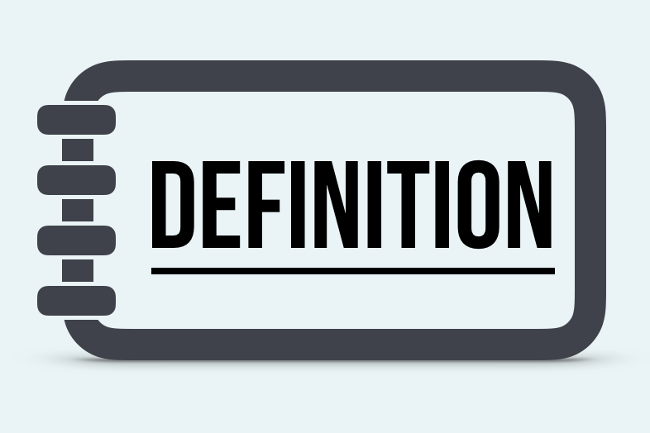
Defining FGDS
Fundamental geospatial data sets (FGDS) are those data types that are most commonly needed by multiple entities within the BNSDI community.

Classification Schema
FGDS data are grouped according to certain classes and themes of data to help identify those that are related from a data modeling perspective.

Scale And Accuracy
Different applications of geospatial data have different requirements for geographic scale and levels of spatial detail and accuracy.

Metadata
Metadata is the data about data, basically a standardized catalog that describes existing data holding.
Defining FGDS
Fundamental geospatial data sets (FGDS) are those data types that are most commonly needed by multiple entities within the BNSDI community. These often include, among other issues, topographic information, cadastral information, ortho-rectified aerial photography, elevation data, transportation, hydrography, governmental administrative units, land use/land cover, demographics, soils, climatology, air and water quality, community facilities and service areas. International experience has revealed a range of information types that are often needed in common within an NSDI, and this list has been used as a starting point for further refinement and extension to a form that is specific to Belize. For the purposes of this data inventory and assessment, FGDS are defined around ―geospatial primitives‖ that represent the most basic geospatial feature that is being represented or referenced. For example, a building footprint represents the location of the external walls of a habitable structure, and that building footprint may fall within a plot of land which is a unique cadastral area that has been administratively and legally defined. Both of these features may also relate to but are distinct from a street address point that actually represents the location of the primary entrance to an addressable structure. Other information may only be spatial by a reference to one of the geospatial primitives, for example a business license in a tabular file that can be tied to a location on the ground through a street address or building identifier. FGDS definition helps to identify sets of related data and a variety of interdependencies that need to be reflected in the modeling of that information to a standardized content and form that can support the widest range of community needs practical, while recognizing that this information is to be maintained independently by officially recognized data custodians
FGDS Classification Scheme
FGDS data are grouped according to certain classes and themes of data to help identify those that are related from a data modeling perspective. The FGDS framework is organized as a taxonomic description of the fundamental classes, related data themes, and the principal topics that make up a data theme. Classes, themes, and topics are outlined below and the taxonomic categories utilized in BNSDI currently are listed in Appendix B: Class. A data class is a grouping of related data issues that have topical and structural commonalities. Relationships between objects in a class can be both spatial and topical (i.e. domain specific). A class contains data themes. Theme. Data themes are sub-types of a data class. These usually have geospatial properties but may not always have physical representation on the ground. Data themes usually relate to an area of knowledge, a phenomenon, or a data product. A data theme is made up of one or more related data topics. Topic. Data topics are sub-types of a data theme. They have geospatial properties and generally speaking, strong spatial relationships at the data theme level. Data topics may describe multiple types of a single geographic phenomenon or data products. Also, one FGDS may related to several data topics. Representation of data topics will vary by spatial scale. Requirements for data collection and management will also vary within a single data topic. Additionally some topics are not inherently spatial, but can be related to a specific spatial primitive feature for geocoding purposes. Basemap. Information in this class provides the spatial frame of reference for all other geographic data. These include horizontal and vertical geodetic control, topographic and bathymetric contours, spot elevations, planimetric features (such as landmarks), remote sensing imagery, coordinate grids, and similar information. The Basemap class includes the following data themes:
Environmental: Environmental data typically include features of the natural environment such as land use, soils, geology, archaeological sites, sensitive flora or fauna locations, and other information concerning the natural and cultural environment. There is a great deal of interest within certain organizations involved with rational physical planning, resource management and environmental protection, to enhance the development of more extensive environmental databases. The classification of flora, fauna, and biological habitat data, for both terrestrial and marine environments, has been brought together under Biodiversity. This theme recognizes the interrelatedness and complexity of plant and animal species within habitat zones. Terrestrial and marine plants, animals, and habitats are then addressed under specific data topics. The Environmental class includes the following data themes:
Utilities. The definition of utilities in the present context addresses the various types of asset-intensive and capital-intensive infrastructure services such as electricity, water, sewage, gas, and to a certain extent telecommunication. Utilities around the world may have undergone several stages of unbundling and/or restructuring of their services following the wave of deregulation and/or privatization that have swept the globe during the pervious two decades with an attempt to improve market competitiveness and to provide a better offering to the public i.e. improved service quality at lower prices. The Utilities class includes the following data themes:
Transportation. This class include roadways, highways, rail lines, bridges, airports and any other information related to transportation networks and facilities. This information can be used in a variety of spatial analyses and for general reference. For example, the street network can be used to route delivery trucks, school buses, public transport vehicles, emergency medical or police response, and other routing applications. It can also be used for allocation applications, by correlating the street network with other information, such as population adjacent to the streets to be served by public transportation, and other factors. The Transportation class includes the following data themes:
Survey Control
Places
Elevation
Imagery
Remotely Sensed Data
Planimetric Features
Structures
Scanned Basemaps
Grids and Indexes Areas.
This class refers to subdivisions of land (or water) according to some intended purpose. Areas, such as political units, can follow topographic features, or be used to delineate socioeconomic or management zones. Areas delineate jurisdictional areas, socioeconomic and management zones and are used for a variety of planning, administrative and adjudication purposes. The Areas class includes the following data themes:
Activity Areas
Cadastral
Planning Areas
Political/Administrative Areas
Service Areas
Special Management Areas
Statistical Areas
Social Areas Environmental.
Air and Climate
Waste
Cultural Resources
Land and Aquatic Use/Land Cover
Biodiversity
Surficial Hydrology
Subsurface Hydrology
Soils
Geology
Seismology
Geomorphology
Marine Abiotic
Electrical Facilities
Potable Water Facilities
Sanitary Sewer Facilities
Storm water Facilities
Telecommunication Facilities
Waste Management Facilities
Land Transportation
Water Transportation
Air Transportation
Scale and Accuracy
Different applications of geospatial data have different requirements for geographic scale and levels of spatial detail and accuracy. The geographic scale at which information is compiled can be indicative of the level of detail and accuracy that can be reliable achieved. The BNSDI geospatial data can be grouped into three scale ranges:
Large scale. 1:1,000 to 1:5,000 – typical scales for an urban neighborhood or for detailed engineering works, or to view a whole village.
Medium scale. 1:10,000 to 1:25,000 – more suitable at the city level, or for a large area of relatively distributed human development;
Small scale. 1:50,000 and above – used to visualize large parts of the country. Much smaller scales may be used to depict data at the national and international scales, but these are too general as FGDS for most applications, and are therefore not specifically addressed here;
Positional (horizontal and vertical) accuracy can be of crucial importance, and there is a relationship between this and scale, whereby the level of accuracy generally increases at larger scales. Attribute accuracy is also important to the overall accuracy of a geospatial dataset. This refers to the consistency and accuracy of the information that has been entered into tabular database fields.
Metadata
Metadata is ―data about data‖, basically a standardized catalog that describes existing data holding. A common geospatial metadata catalog is important in that it allows stakeholders to identify information that may be of interest, and to qualify its appropriateness for a particular use. The international GIS community has developed common geospatial metadata standards that have now been formalized within the International Standards Organization (ISO), the U.S. Federal Geographic Data Committee (FGDC) and the Open Geospatial Consortium (OGC). In addition, there are related metadata standards that either extend the geospatial metadata standards to accommodate specialized areas of use, as well as metadata standards in related fields such as library documents and multi-media. SDI metadata should provide summary information on the data including, but not limited to, the following:
Data inventory or catalogue
Geospatial coverage
Conditions applying to access to, and use of spatial data sets and, where applicable, corresponding fees;
The quality of spatial data, including whether they are validated and the quality measures, specifications and procedures that were adopted for data validation;
The custodian agencies i.e. responsible for establishment, management, maintenance and distribution of spatial data sets and services including contact information;
Limitations on public access and the reasons for such limitations in accordance with government laws.
The BNSDI community has adopted the ISO metadata standard, however, in most organizations today this information has not been developed and/or is not maintained. Two notable examples of organizations that have developed extensive metadata records include CZMAI and BERDS.











